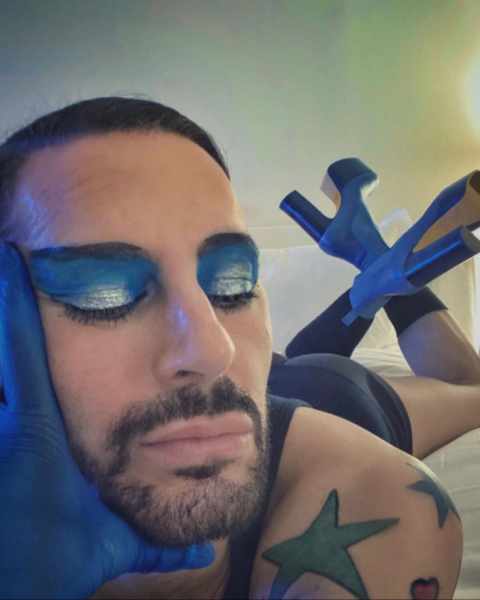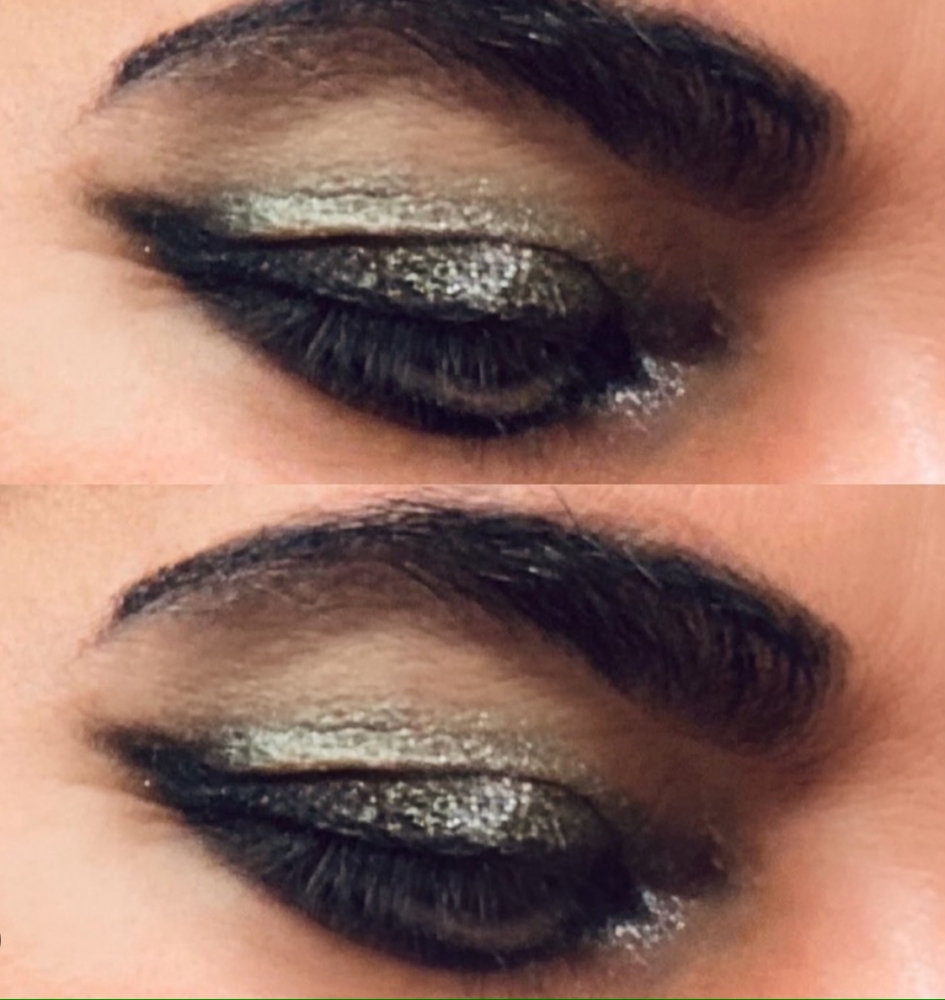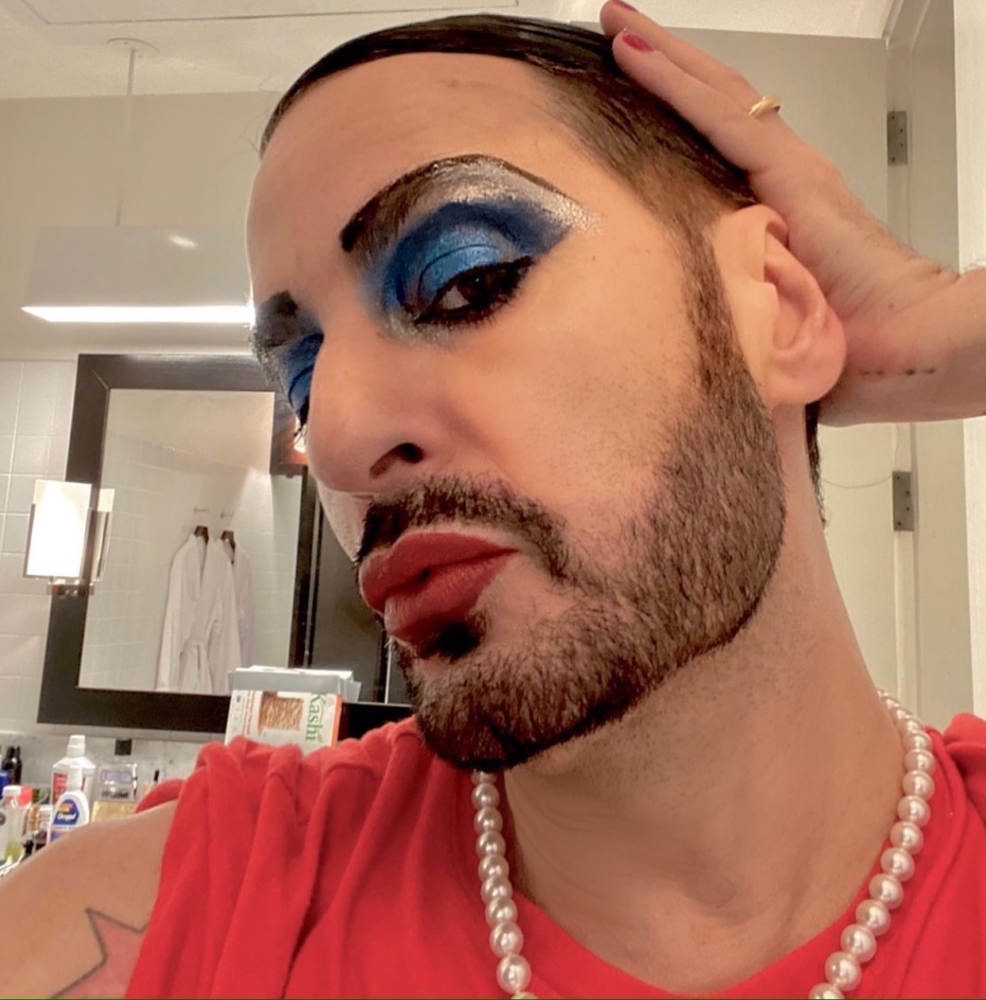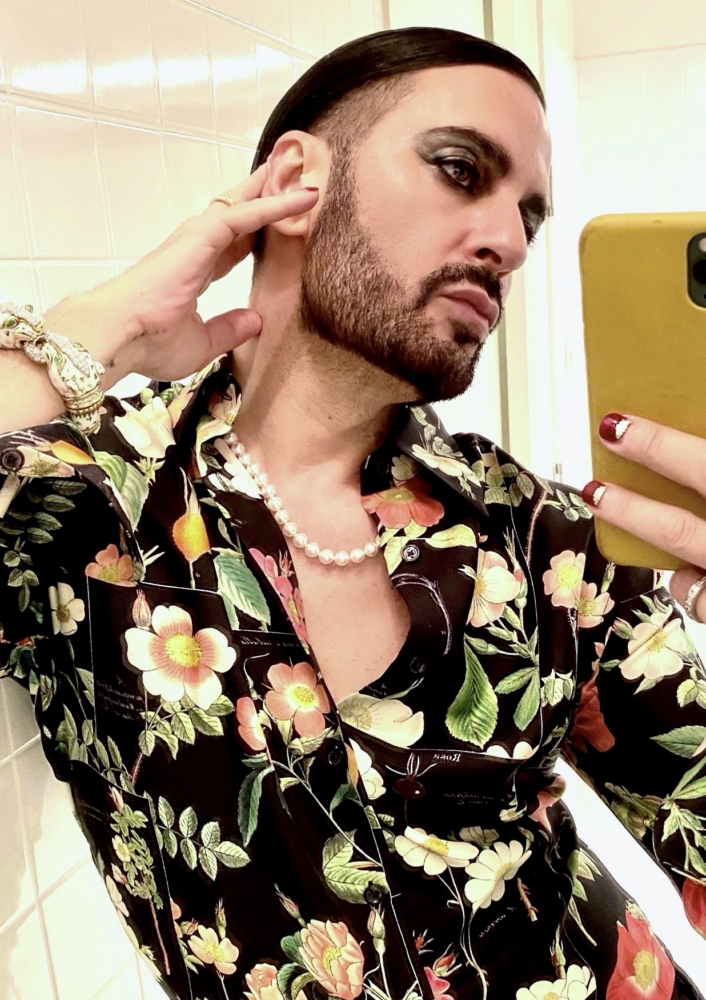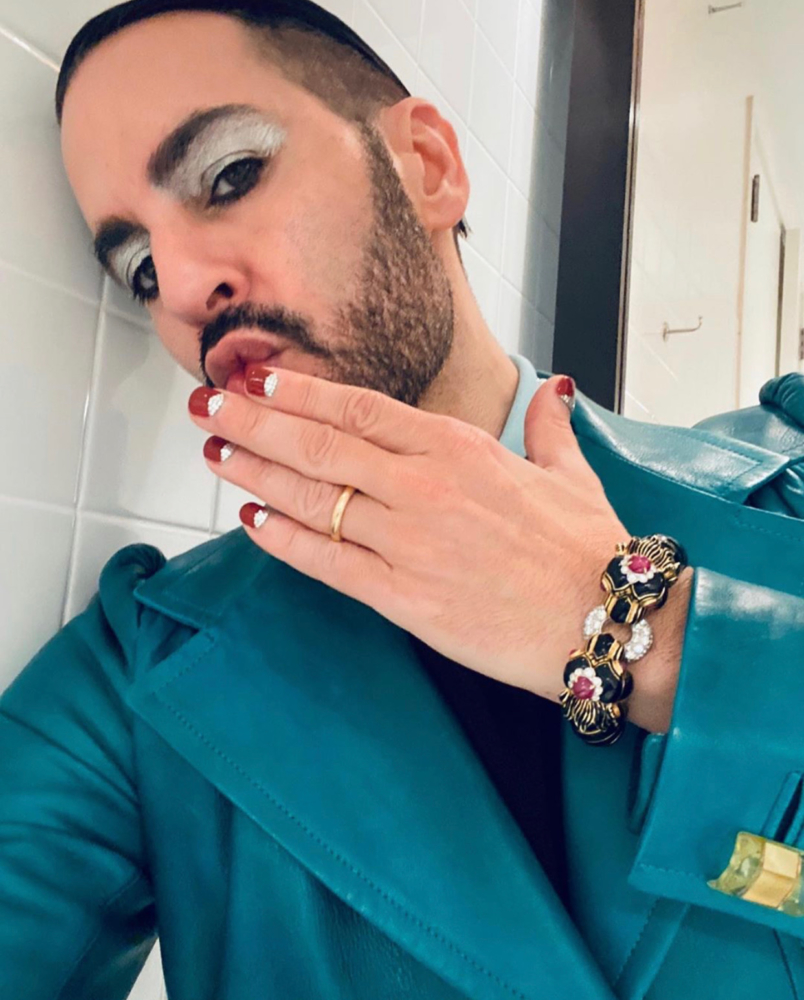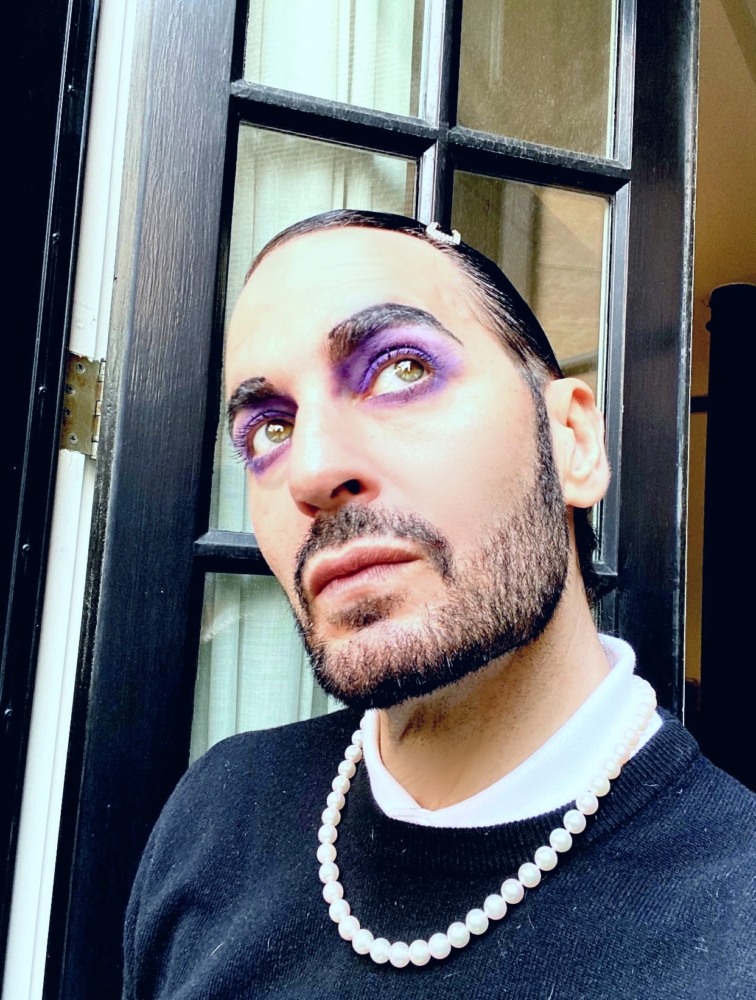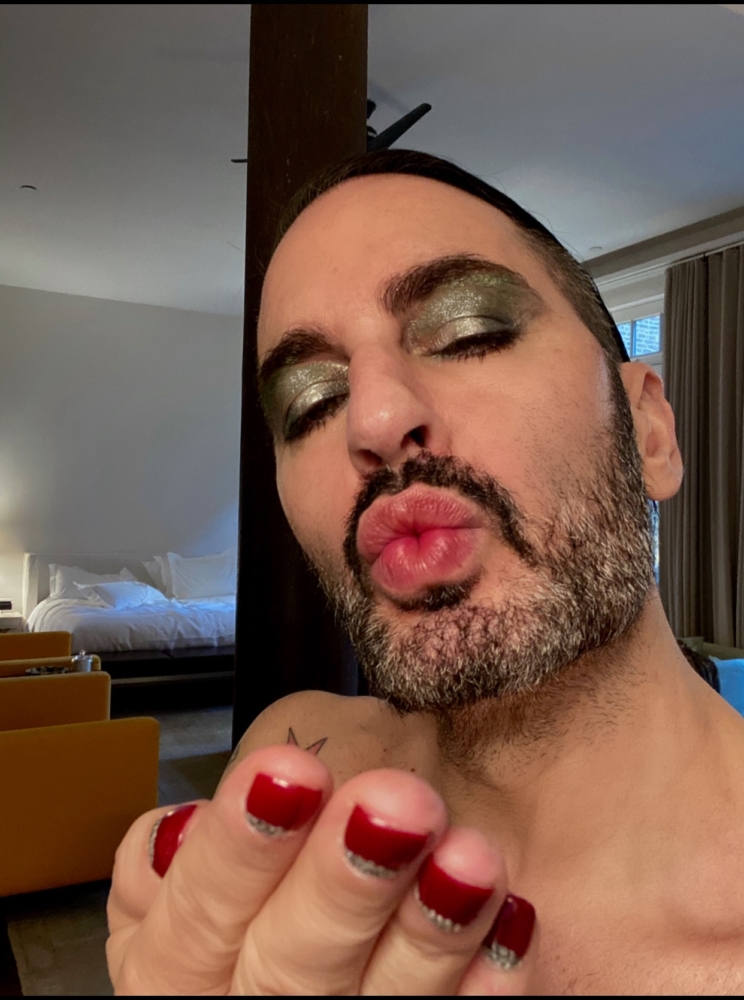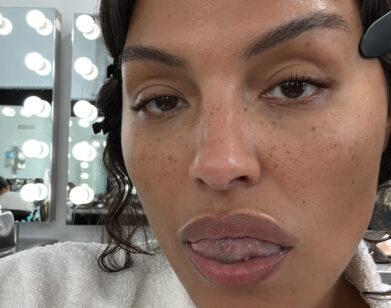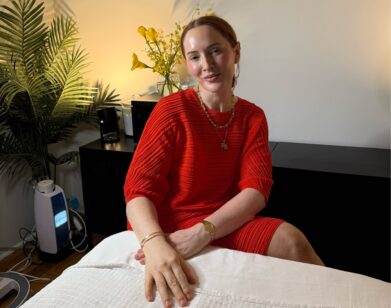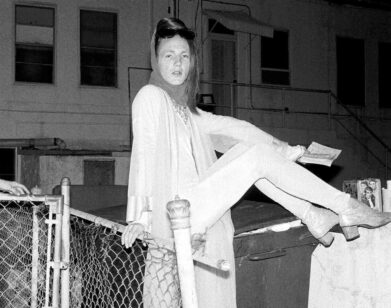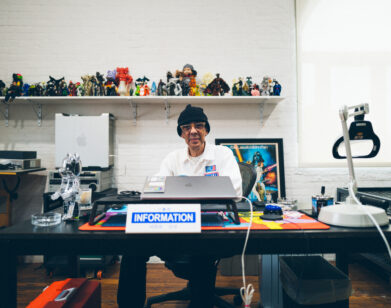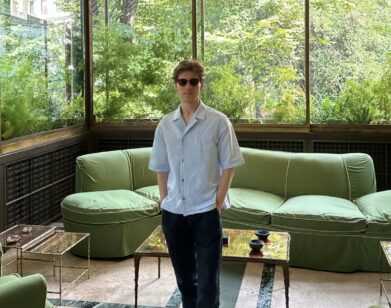Marc Jacobs Thinks Men Should Wear Makeup
Nowadays, a brazenly coiffured gentleman is no cause for alarm. The stigma against makeup for men is finally fading back into the depths of history where it belongs—but how did we even come to carry this prejudice in the first place? To get to the bottom of this mystery, I asked the legendary fashion designer and illustrious dandy Marc Jacobs, who has been playing with his own makeup drawer in quarantine.
He explained that there is a rich history of men wearing makeup stretching back to the Ancient Egyptians (as early as 4000 BC). An explanation for the downfall of male makeup can be found at the very root of our nation’s inception, for it was during the American Revolution that spectacular male display— or “peacocking,” long a symbol of monarchical rule—was replaced with a more subdued masculine ideal that celebrated the rugged frontiersman. The result was a shrunken idea of what masculinity could look like, with the practice of beautification long rendered effete, feminine, and utterly taboo.
———
HARRY BRANT: What do you think is primarily responsible for the stigma against men’s makeup?
MARC JACOBS: It’s a very interesting origin, and I think the stigma comes from going against what human nature is. It is human to adorn oneself. After all, spectacular male display has always been something innate. A perfect example can be found with the bird of paradise or the peacock. Mother nature designed the male birds with wildly extravagant plumage so they could entice their female counterpart, whose own feathered coat was actually quite drab and beige. Another example would be how certain men dressed up in the ’60s—they were even known as the peacock generation. Honestly though, as a young kid I never gave it that much thought. I just followed my heart and felt that since I like to decorate my clothes, dress up, get attention for the way I look, I should express myself through my appearance. However, it’s funny because a lot of the time society’s acceptance of men’s makeup feels culturally selective. Think of how a man in a supermarket wearing makeup has a stigma, but a man on a red carpet doesn’t, and is in fact, expected to wear makeup, just like an anchorman is also expected to wear makeup—because we never want to see our idols looking imperfect. While the idea of adorning oneself, or making yourself up, might be different than covering up a zit or concealing tired eyes, at the end of the day it’s instinctive to want to look more attractive. Makeup is makeup, which is why I’ve always found the distinction between men’s and women’s makeup to be kind of ridiculous.
When people say, “Oh, it’s guyliner.” I know that’s kind of being funny, but eyeliner’s eyeliner. It’s not masculine or feminine; it belongs to no sex. People will come up to me very often and they’ll say, “Isn’t that a Prada women’s coat?” And I just say, “Well, to me, it’s a coat. But yes, I bought it in the women’s department.” Oh, a coat has a gender now? Yes, it fits differently because it was cut for a woman, but I’m wearing it. It’s my coat and I like it. It’s the same thing with nail polish. When I go to get my nails done, I always put color, nail art, or whatever I should fancy. Nowadays I see more and more men getting their nails and their toes colored, and I have no idea what they’re interested in sexually. I don’t have conversations with them. I really don’t care. I’m just happy to see that space being occupied by people of all genders and identities. It seems like so many heterosexual men do microblading on their eyebrows, even using makeup to conceal and cover. Yet they somehow don’t see this as makeup because it’s not color or glitter. To them, makeup is what a woman wears because she rouges her cheeks, her lips, she paints, puts a shadow on her eyes, or whatever. They make this distinction about what makeup is masculine and what makeup is feminine and, I just think, “Oh my god, it’s such hypocrisy, the idea that beauty has different tiers.” It’s all so very human, the hypocrisy of playing by one’s own rules and having restrictions but breaking them to suit your own sense of masculinity.
BRANT: Exactly. To me, wearing makeup is almost like a sense of armor that can be wielded whichever way I want, as a completely transformative form of self-expression.
JACOBS: Yes! When I was younger, I used to have very, very long hair. So consequently when I was in fifth or sixth grade, I was constantly bullied. Anytime I was around other young boys, I was made fun of because I decorated my clothes, customized them, had this extremely long hair, walked on my toes, and generally behaved in what other boys would consider “feminine” or “flamboyant” behavior. So, I remember in the fifth grade, after being tortured by a group of boys, I came to my very sweet teacher in tears, and she said, “Listen, they’re only calling you a girl because you’re so pretty and they aren’t.” And I just thought, yeah, you know what? I’m pretty. [Laughs] It really shifted my perspective because I thought, well, who wouldn’t want to be pretty or beautiful? If they’re mad at how beautiful I am, then I understand it. They’re jealous.
BRANT: I also have very long hair, and when people mistake me for a girl, I see it as the highest form of compliment. Women are such lovely ethereal creatures, so if you confuse me for a member of the fairer sex, I honestly think it’s flattering. One of the reasons I love doing other people’s makeup so much is because, as a very self-conscious person, I know how liberating the tiniest cosmetic can make you feel. So, when you’re able to accentuate the beauty someone has within themselves that they perhaps weren’t able to see, it’s kind of magical.
JACOBS: Yes, I feel more like that with clothes than I do with makeup, but I love having makeup done and I do have my products that I use every day. I can’t leave home without having done my eyebrows and things like that, but I sometimes really like to lie in bed and just do eye shadow, usually a crazy blue, and I do it really roughly so that it’s not perfect or nice. Then I’ll put a little black around my eye. I often end up taking pictures of myself doing makeup in bed and posting it just because I think, “Oh, fuck it. I’m bored. Why not?” Getting dressed up with nowhere to go is so glamorous.
BRANT: I do the exact same thing! It’s my preferred sport, actually. I hope that we live in a world now where little boys can see that and are a little bit less afraid to wear makeup.
JACOBS: It’s so hard, we live in such a bubble … Well, I’ll speak for myself. I feel like I live in a bubble.
BRANT: No, me too. Born and raised. [Laughs]
JACOBS: My shrink always says to me, “You’re in New York City, a safe place. You can walk down the street in high heels, nail polish, a pearl necklace, a Kelly bag, and a leopard coat and you can feel totally comfortable in the streets like that. But you are privileged. You have the luxury of living here, but in most places, someone wouldn’t be so comfortable walking around like that, and they most likely wouldn’t get people turning around and saying, ‘Oh, girl you’re fierce! Work it, diva,’ or whatever.”
BRANT: It’s always a harsh reminder when your bubble bursts, and it happens to me more often than not actually, but I’m still kind of taken aback because you become so accustomed to acceptance and you forget quite what it felt like. It can open those old wounds of being that bullied little kid.
JACOBS: I feel quite strong now, though. I just had a similar conversation because the New York Times had done a profile on me, and my shrink said to me, “You’ve been coming to me for more than a decade, and there were things in this article that I didn’t know about you. But it would explain some of your shame around sexuality and your strong need to express yourself that you feel stronger and stronger about making a point of leaving your house looking like this and nobody’s going to fuck with you. It’s like you were so bullied for that that it’s almost like you’re adamantly going to do it now.” Now, I’m not 7, I’m 57, and they’re not going to fuck with me.

